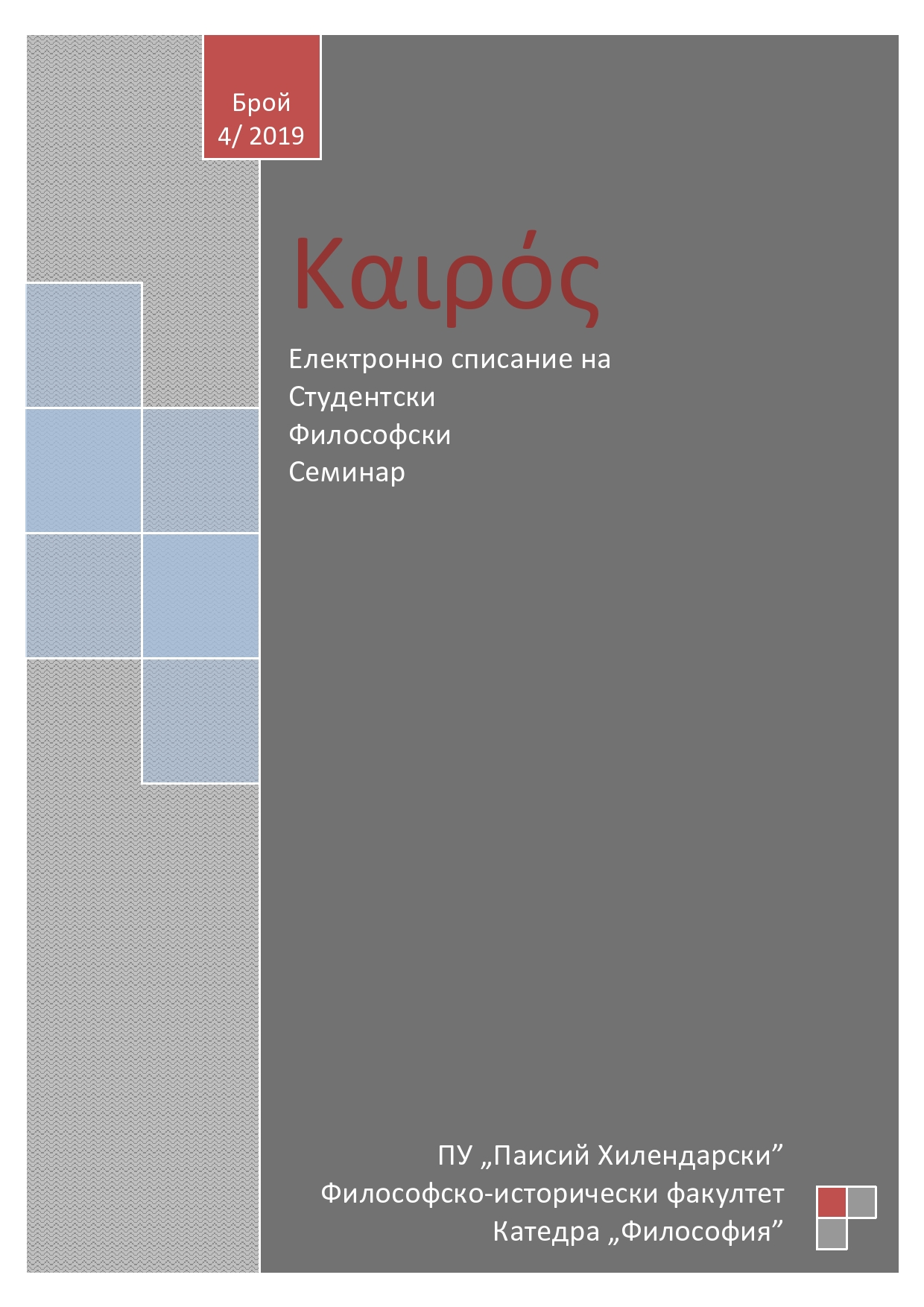Теорията за запознанството и проблемът за логическата форма
The Theory of Acquaintance and the Problem of Logical Form
Author(s): Denitsa ZhelyazkovaSubject(s): Philosophy, Philosophical Traditions, Analytic Philosophy
Published by: Пловдивски университет »Паисий Хилендарски«
Keywords: Russell; acquaintance; logical experience; philosophical logic; propositions; indefinable concepts
Summary/Abstract: With this text I intend to explain the motives that provoke Bertrand Russell to introduce the acquaintance as a kind of immediate knowledge into his philosophy. The thesis I will defend is that without the admission of such a kind of knowledge it would not be possible to speak of the explication of logical form of the propositions. The acquaintance appears in the Principles of Mathematics (1903) as a kind of immediate knowledge of indefinable concepts: "acquaintance like the taste of pineapple". In the period around 1903, it was inextricably linked to Russell's ontological assumptions. The philosopher does not use constructs logical form or logical experience either in the Principles of Mathematics (1903) or in the manuscript of Functions (1904). As will become clear, however, in the period around 1903, can be speaks of logical experience, and under the "element creating unity of the proposition" (1903) and "way of combining" (1904), Russell takes into account the logical form. In 1913, in the epistemological manuscript Theory of Knowledge, Russell explicitly introduced the "acquaintance with the logical form" as a guarantor for the meaningful combination of the constituents of proposition. Only then does the acquaintance with the form be defined as "logical experience" or "logical intuition".
Journal: Καιρός
- Issue Year: 2019
- Issue No: 4
- Page Range: 33-41
- Page Count: 9
- Language: Bulgarian

